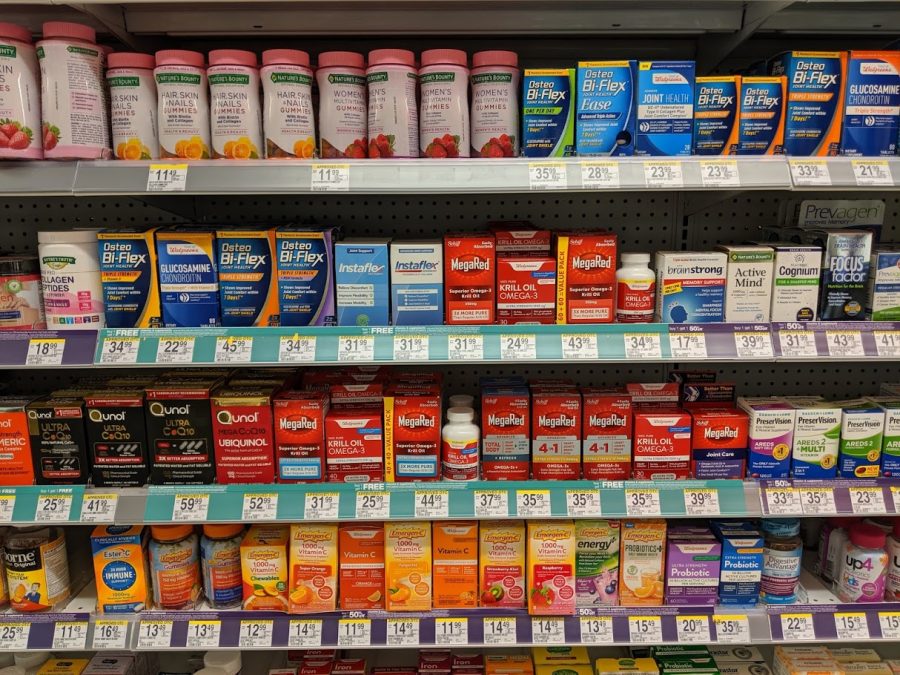Government needs to regulate vitamins
Bottles of vitamins are displayed in an aisle at Walgreens on Thursday. Columnist Alice demands the FDA begin regulating vitamins to ensure consumer safety.
Sep 16, 2019
With how big of a role social influencing seems to now play in our day-to-day lives, it’s easy for misinformation or misleading facts about products to reach us. Whether it’s Instagram or YouTube, social media stars are promoting anything and everything to their fans. From Sugar Bear Hair vitamins to Care/of vitamins, dietary supplements are a popular product for influencers to push to consumers.
Though you might think vitamins go through a process of rigorous testing and trials to make sure they are safe and healthy to take, that’s not the case.
Manufacturers are not required to seek FDA approval before selling dietary supplements. This means companies are allowed to claim whatever health benefits they want so long as they have some research and a disclaimer that the FDA has not reviewed their claims.
This laissez-faire approach regarding vitamin regulation is in stark contrast to the rigid structure of ensuring drugs are safe and effective by requiring clear proof they work. If drugs need to be held to the utmost standard of safety, vitamins also need to be regulated.
Many people suffer from vitamin deficiency and need to take dietary supplements, and they should feel confident the pills they take are actually fulfilling their functions; but because the FDA has more leniency regarding the testing of vitamins, many consumers are unsure which brands are the most effective.
Get The Daily Illini in your inbox!
Americans spend $25 billion a year on dietary supplements, and some even view it as a more natural and safer alternative to potent drugs. So many people depend on dietary supplements for their daily lives, and the FDA is doing a disservice to the integrity of public health by letting it go unregulated.
When Kim Kardashian and James Charles go on Instagram to advertise the long-term health benefits of taking a bright blue vitamin in the shape of a bear, consumers buy into the things they’re saying. Not only is there little chance they’ve actually taken the vitamins long enough to see a difference, but they are paid to endorse these products by rich companies who care more about making money than making people healthy.
Dietary supplements should be made and handled by people in the medical field who know what they’re doing, not corporations who depend on the influence of social media stars to make sales.
There are objectively better vitamins out there, but people may not know the difference because the FDA doesn’t regulate it. It’s important for the vitamins actually worth taking to be given credibility with a seal of approval by the FDA so consumers can trust in the product they’re buying.
We need to be able to discern the difference between the truly healthy pills and the fake pills endorsed by celebrities instead of health professionals. It’s up to the FDA to create rules and regulations for us to be able to do so.
Alice is a sophomore in LAS.






